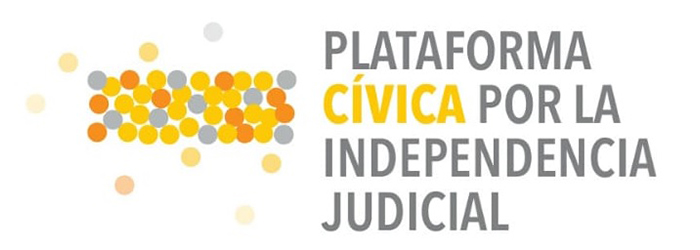The “PCIJ” (Plataforma Cívica por la Independencia Judicial) is a non-governmental Spanish Association devoted to prevent the politisation of Justice in Spain. We sent United Nations earlier 2014 year a complaint describing the threats posed against Spanish judges by political power.
Now, we present again another report to make you know the new facts arising since that date that deepen the aforementioned threats.
This is its full text:
Dear Ms. Knaul
On January 2014 the Spanish association known as “Plataforma Cívica por la Independencia Judicial” submitted a complaint before the Special Raporteur for Judicial Independence of the United Nations that we hereby proceed to supplement:
The actual situation of Spanish judges in practical training poses a serious danger against judicial independence. Since first of March 2015 those judges have been appointed to several courts all over the country to exert full jurisdiction but without enough legal safeguards. Although they are already legitimately entitled to serve judicial jobs, they have been assigned to posts only to fill vacancies as substitutes. On the other hand, they remain under the control, both of the Judiciary School and the Presidents of their concerned Regional High Courts of Justice, who are at liberty to issue a final report to evaluate their judicial performance at the expiration of that temporary service period.
Spanish Constitutions provides, in its section 122, for a judiciary consisting of a single body whose members are equal in rights and duties. The aforementioned situation, since it is discriminatory for some of the Spanish Judges, undermines the constitutional guarantee of an independent Judicial Power.
Legal Status of Spanish Judges in practical training comprises of a lesser level of rights in comparison with the rest of members of judiciary, even with a minor economic reward, but with the same duties and responsibilities. If they have not finished their instruction period, they should continue their education until its completion before serving any judicial job; but, if they are already prepared to exert full jurisdiction, they should perform their professional services without restrictions on their legal status.
We regret that the General Council of the Judicial Power, as governing body of the Spanish Judiciary, has always remain passive over this discriminatory situation, opting for a low profile instead of taking a firm stance in defense of Spanish Judges.
We would like to remind you that, at this moment, there are hundreds of judges all over Spain in expectation of been appointed to a judicial post. This situation adversely affects their familiar and professional life in addition of endangering the legal tenure of their jobs, the non-removability of judicial function and the constitutionally guaranteed judicial independence.
We look forward to your prompt response, given the imminent threat to Judicial Independence in Spain.
Yours sincerely.
On March 2nd, 2015
Jesús Manuel Villegas Fernández (General Secretary of PCIJ)
Post-scriptum: link to the Official State Gazzette where the aforementioned statuary regulation was published: http://www.boe.es/boe/dias/2015/02/24/pdfs/BOE-A-2015-1852.pdf
